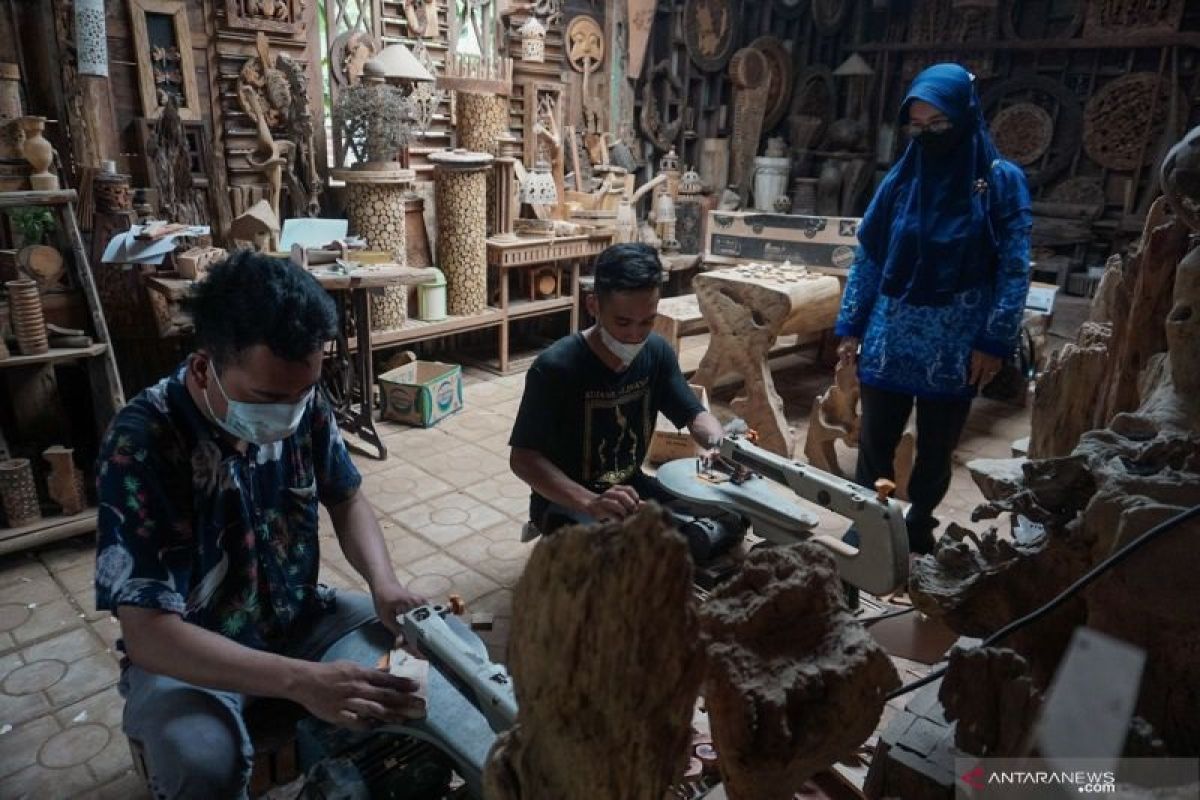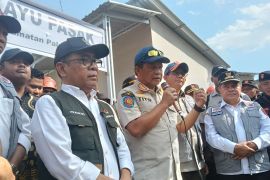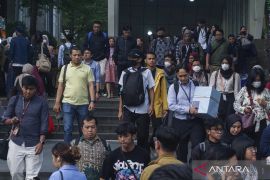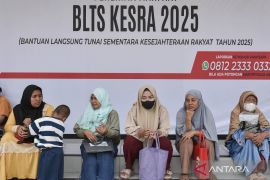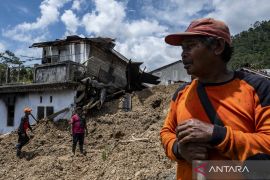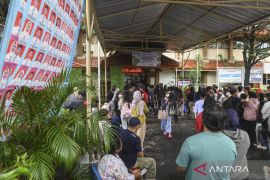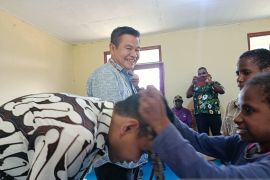The JKP program will help laid-off workers find new jobs, provide them cash assistance, access to job market information, and job training.
The provision of state protection for workers who have lost their livelihoods is not new. Similar programs have been implemented in several countries, such as Japan and South Korea.
In Indonesia, the implementation of JKP is a derivative of the Job Creation Act, according to Government Regulation Number 37 of 2021 concerning the Implementation of the JKP Program.
The regulation explains that the JKP program will be carried out by the Workers Social Security Agency (BPJS Ketenagakerjaan) and the central government. The participants of the program will receive cash benefits for six months, access to job market information, and competency-based job training.
In order to avail of these benefits, JKP beneficiaries must have participated in the BPJS Kesehatan (health) and Employment social security program and applied for old-age insurance program (JHT), Work Accident Insurance (JKK), Death Insurance (JKM), and Pension Security (JP) through BPJS Ketenagakerjaan and National Health Insurance (JKN), organized by BPJS Kesehatan.
Workers who want to work again and workers who have a contribution period of at least 12 months out of 24 months and have paid a contribution fee to BPJS Kesehatan and Ketenagakerjaan for six consecutive months before being laid off will be eligible for the JKP program.
The benefits will not apply to workers who resigned, suffered permanent total disability, retired, or died.
The cash benefit will be provided for six months, with 45 percent of wages provided for the first three months and 25 percent of the wages for the next three months. The wage limit will be Rp5 million.
Ahead of the implementation of the JKP program, labor observer from Gadjah Mada University (UGM), Tadjuddin Noer Effendi, said that the program intends well: it seeks to provide assistance to workers in Indonesia as they look for a new job after being laid off.
However, he also reminded that the government needs thorough preparation for implementing the program, especially when it comes to tackling data problems.
The preparation of the data verification process is very important to disburse the assistance right on target, Effendi said.
The data validity verification is also important considering that one of the benefits that will be received by beneficiaries is cash assistance for six months, he explained.
Not only that, the data verification process also needs to be carefully prepared considering that there are special conditions for a worker to receive JKP, such as conditions related to contributions to BPJS Kesehatan and Ketenagakerjaan, he said.
Careful preparation is also needed regarding the provision of benefits to access job vacancy information and training, he added. He emphasized that the benefit regarding filling job vacancies as promised will not be easy.
Likewise, the benefit of job training, which is in accordance with Government Regulation Number 37 of 2021, will have to be carried out by job training institutions owned by the government, private sector, or companies, he pointed out.
Moreover, job training must be aimed at not only gaining employment but also starting an enterprise, he said.
"This JKP program must be well-prepared by the government to achieve the target," he added.
Manpower Ministry's Preparation
The Manpower Ministry, in several separate statements, has conveyed its commitment to the implementation of the JKP program.
The ministry has started to prepare regulations ranging from Government Regulations (PP), Minister of Manpower Regulations, to Minister of Finance Regulations, while the regulation from the head of BPJS Ketenagakerjaan has been completed, it informed.
The ministry said it has also prepared technical steps for building an integrated system with BPJS Kesehatan and Ketenagakerjaan.
The implementation of the JKP program will also be digital-based. Head of the public relations bureau from the Ministry of Manpower, Chairul Fadhly Harahap, explained that the benefit distribution process will go through the landing page or JKP page in the Employment Information System (Sisnaker).
On that page, prospective JKP beneficiaries can check their eligibility for receiving assistance ranging from cash assistance, counseling, job market access, and training program recommendations, he informed.
"All benefits distribution processes will utilize the JKP landing page in the Employment Information System," Harahap said.
The Manpower Ministry has also prepared a system called Siap Kerja (Ready to Work) to support JKP beneficiaries, specifically through providing access to labor market information, he added.
The Siap Kerja system will provide information to JKP beneficiaries regarding overviews of jobs, he said.
The system is expected to facilitate JKP beneficiaries in finding jobs that suit them, he added.
The ministry has also prepared training partners (LPK) to implement the JKP program. The registration for the program opened on January 6, 2022, and closed on January 12, 2022.
Moreover, the ministry has trained 180 prospective counselors across Indonesia to provide counseling services to beneficiaries who are looking for work or seek training for reskilling, upskilling, and entrepreneurship.
Counselors will also provide recommendations for training programs to JKP beneficiaries.
All these preparations have been made to encourage the JKP's utilization in accordance with the objectives to help workers who have been laid off and want to return to work in other companies.
Secretary general of the Ministry of Manpower, Anwar Sanusi, noted that the ministry is committed to implementing the JKP program as well as possible.
Sanusi emphasized that the spirit of JKP during the discussion regarding the Job Creation Law also covered tackling employment issues, including employee layoffs.
Related news: Workers' welfare guaranteed through extra benefits of JHT: ministry
Related news: Almost 35 percent informal sector workers have no health insurance
Related news: Bank Mandiri offering life insurance to health workers: SOE minister
Editor: Rahmad Nasution
Copyright © ANTARA 2022
